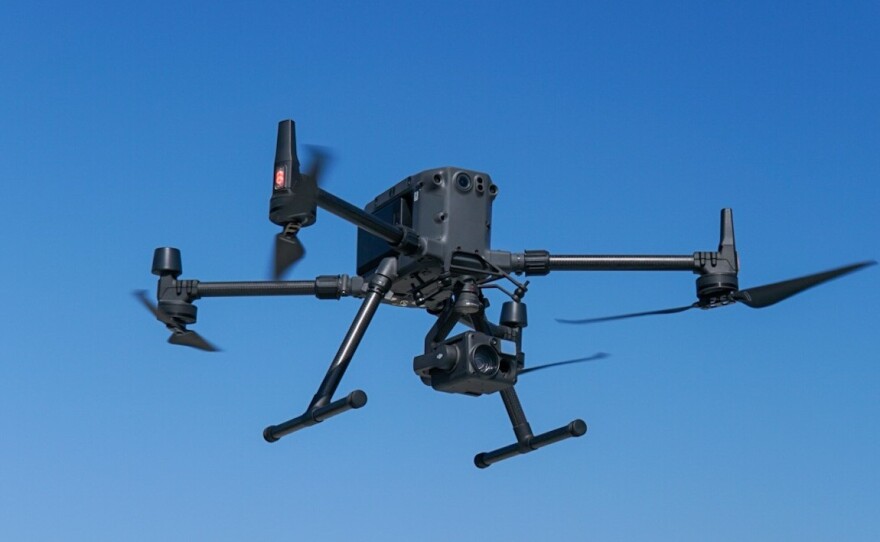The San Diego Police Department on Thursday published a large cache of documents that detail the many surveillance technologies it uses to investigate criminal activity and monitor large gatherings, such as protests.
Last year, the City Council passed a surveillance ordinance that required SDPD to disclose information about how it uses surveillance technology, stores data and ensures proper use of the equipment. The department established a “Technology” page on its website to fulfill the statutory requirement. However, privacy advocates said the page was mostly empty until Friday.
In addition to providing dozens of so-called “use policy” reports, the webpage also provides an option for public comment on each piece of surveillance equipment. The opportunity for public comment will remain open for the next three weeks.
“The San Diego Police Department has been working quickly to make sure all of our technologies are documented with the use reports and impact reports to meet the obligations of the ordinance,” said SDPD spokesperson Ashley Bailey. "The importance of the ordinance was to be transparent with how departments across the city are using technology, who has access to that technology and how the data is shared.”
Privacy advocates have been waiting for months for SDPD to publish these reports.
“This disclosure is a really big win,” said Brian Hofer, executive director of Secure Justice, a California-based nonprofit that advocates against government and corporate overreach. “You can’t regulate what you don’t know about … now the public can have a meaningful say into what technologies get used or don’t get used.”
Hofer added that publishing the reports is only the first step in a long process under the ordinance. SDPD must also organize community meetings in each council district where specific surveillance technologies are used to inform the public and solicit feedback. The department also has to produce impact reports that weigh the pros and cons of each technology.
In addition, the city’s Privacy Advisory Board will review each piece of surveillance equipment the department currently uses or wants to use in the future. The board will make recommendations to the City Council, and council members will decide to permit or prevent SDPD from using the equipment.
Hofer said the reports recently uploaded to SDPD’s website “are a little bit thin,” but believes more details will emerge as the process unfolds.

Among the surveillance technologies disclosed by the city on Friday were controversial drones made in China, equipment that allows police to collect data from computer chips inside cars and cell phone encryption busters.
The drones are manufactured by the Chinese firm DJI. In 2017, the U.S. Department of Homeland Security (DHS) flagged the company’s drones over security concerns. KPBS previously investigated concerns surrounding Chula Vista Police Department’s use of DJI drones.
In its 2017 report, DHS said,"DJI Science and Technology is providing critical infrastructure and law enforcement data to the Chinese government.” In a statement last year to KPBS, a DJI spokesman said the company does not have access to data collected by its customers.
SDPD is also using equipment from a company called BERLA to vacuum up loads of data from vehicles suspected of being involved in a crime. The technology pulls the data from a car’s “infotainment” and “telematics” systems, which contain granular details about the vehicle’s use.
According to SDPD’s policy use report, the BERLA equipment can identify door openings, ignition activity and seatbelt usage, and these events are often connected to time and GPS data. The technology also pulls data based on cell phones that were paired with the car, including contacts and call logs.
The department also uses equipment from multiple companies, including Cellebrite and Grayshift, that busts through passwords and encryption to pull data from cell phones. The technology pulls a wide array of data from phones, including: call logs, text messages, emails, photos, videos, contacts, browsing history, app data, and location data. Some technologies can also dig up deleted files on a phone.
The SDPD's use of surveillance technology has been a source of controversy in recent years. In 2016, the city acquired so-called "smart streetlights," which included cameras, with the idea that they would help save energy, monitor traffic patterns and improve transportation planning.
However, the cameras were never able to produce valuable data for those purposes. In August 2018, the department began accessing footage from the cameras and using it in criminal investigations. SDPD crafted its own policy on when detectives could use the footage roughly six months later.
That sparked an outcry from privacy advocates, who said the city had never had a public debate over the streetlights' use by law enforcement, and police could not be trusted to self-regulate. In 2020, then Mayor Kevin Faulconer ordered that the cameras be shut off.
But earlier this year, SDPD went public with plans to re-start the smart streetlight program.








